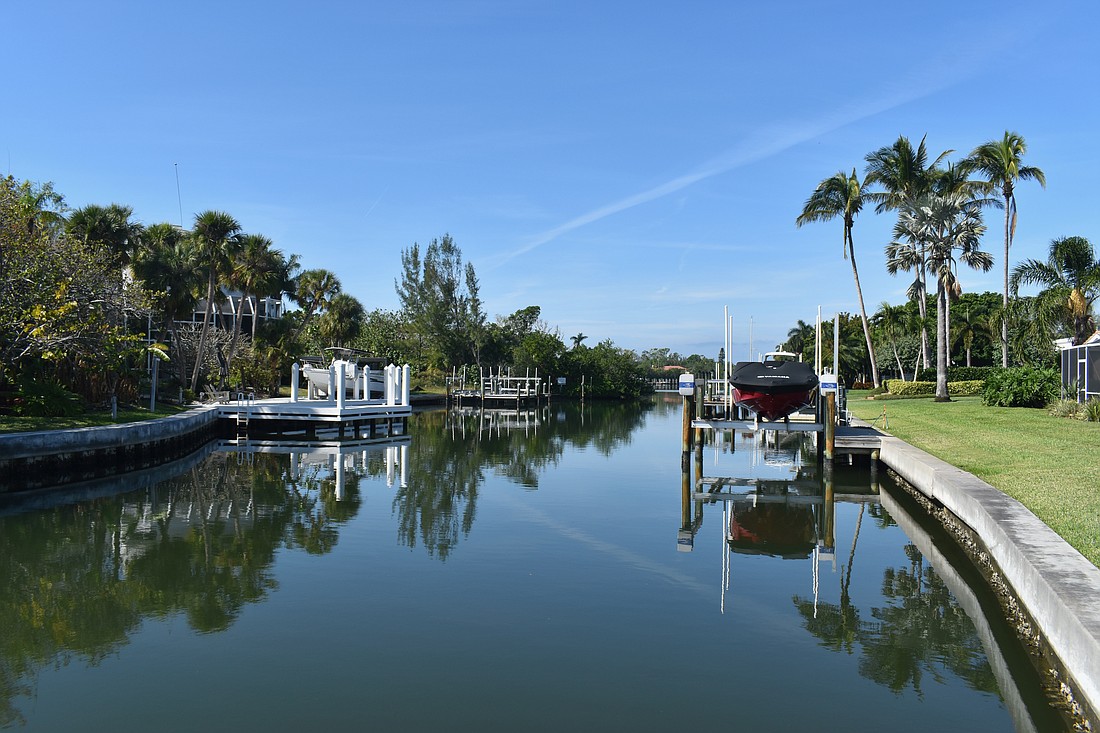- July 26, 2024
-
-
Loading

Loading

The Canal Navigation Program needs to happen, according to town officials. But for now, they will need to hold off for at least another year.
Longboat Key has 81 canals, most of which haven’t been worked on in over 20 years, according to Town Manager Howard Tipton. This project begins with a large dredging project to get the canals back to baseline, followed by a maintenance program.
After the previous town meeting to discuss the dredging program on Nov. 6, town commissioners were left with more questions than answers as to how the program would work.
“It wasn’t the best performance that we could have done,” Tipton told commissioners. “It was a complex issue. We really hadn’t been talking about it since the spring.”
Staff decided the best course of action would be to present the information in smaller chunks, having individual meetings with each commissioner for feedback. This allowed for staff and commissioners to regroup and rethink some concepts, which proved to be useful, Tipton said.
Assistant Public Works Director Charlie Mopps presented updates and a summary of the feedback from individual commissioners at the Dec. 11 workshop.
The original goal was to re-baseline the canals, which is estimated to cost $16.8 million. This would be “pay as you go,” he said, meaning the town wouldn’t accrue debt. That would include both ad-valorem and non ad-valorem assessments.
The first feedback Mopps received was to figure out how to reduce costs.
One of the first steps in that process is to re-survey the canals. Currently, staff is using canal data from 2016, and new surveys could provide better insights as to what is actually needed, Mopps said.
Taylor Engineering was originally the engineering firm for the project, but Mopps said the town will hire a second firm for the new survey in order to get a second set of eyes on it. Mopps did not yet have an initial estimate as to how much the survey would cost.
He also said the initial dredge could be more variable to try to cut costs. Some canals, he said, might need to be different widths and depths, and don’t all need to be dredged to the permitted depths and widths.
There’s also the option to eliminate some canals from the project. Examples could include Canal 33a, which Mopps learned is an abandoned canal.
Mopps also mentioned it’s possible to extend the initial baseline dredge from five years to 10 years. This would spread out the $16.8 million price tag over a longer timeline.
With that, certain canals that come up in the re-survey would be prioritized in the first five years.
The second feedback Mopps received from individual commissioner meetings was that the three types of canals were confusing and hard to explain.
Originally, the program split Longboat’s canals into three categories: direct benefit, shared benefit, or general benefit. Property owners would pay for direct benefit canals through the special assessment, general benefit canals would be paid for through millage and shared benefit would be a 50/50 split between assessment and millage.
Mopps said only three areas of town have shared benefit canals. One option is to convert all shared benefit canals to general benefit.
Commissioner response was mixed, according to Mopps. After the survey results are in, the options can be discussed further to see how the millage would change with and without the cost-sharing of shared benefit canals.
“A lot of this debate should happen when we have more data,” Vice Mayor Mike Haycock said.
Another question that came up, Mopps said, was the distribution of costs among condo associations and homeowners associations.
The program distributes costs based on “water access units,” which Mopps said is like a parking spot for a boat. That could be a lift, a dock or a slip.
Complexities arose in trying to figure out each condo or HOA individually. Mopps said it was brought to their attention that slips could change hands over time, and some associations assign docks whereas others have public docks.
“So why try to go into that level of detail?” Mopps said. “Just do the fair and equitable solution.”
Mayor Ken Schneier raised the point that certain properties may still need closer consideration, such as the Boathouse on Longboat Key. There are around 200 boats but it has fewer access units, he said.
“Maybe it is unique enough that it should be entitled to some special classification,” Schneier said.
Mopps said that’s another aspect that will need more discussion after the new survey results.
In order to get a non ad valorem tax increase for next year, the town would have needed to move forward with a resolution of intent on Dec. 11.
“I think there’s just too much information that you guys would still need,” Mopps said. “And if we went forward with that, it might raise too many questions that we just cannot answer.”
Now, the millage and non ad-valorem components need to wait until the 2025 fiscal year at the earliest.
There’s a small amount of money, $90,000 for the Manatee County side and $300,000 for the Sarasota County side, that Mopps said can be used for the re-survey efforts.
“We’re going to see if we can do the survey work with the dollars that we have,” Tipton said. “But in terms of those larger next steps, it would be an Oct. 1 start date.”
Mopps estimated that survey results would be available in spring or early summer, and he would update commissioners as new information becomes available.
The town commissioners reached a unanimous consensus and directed staff to go forward with re-surveying the canals and to continue refining the costs of the program.